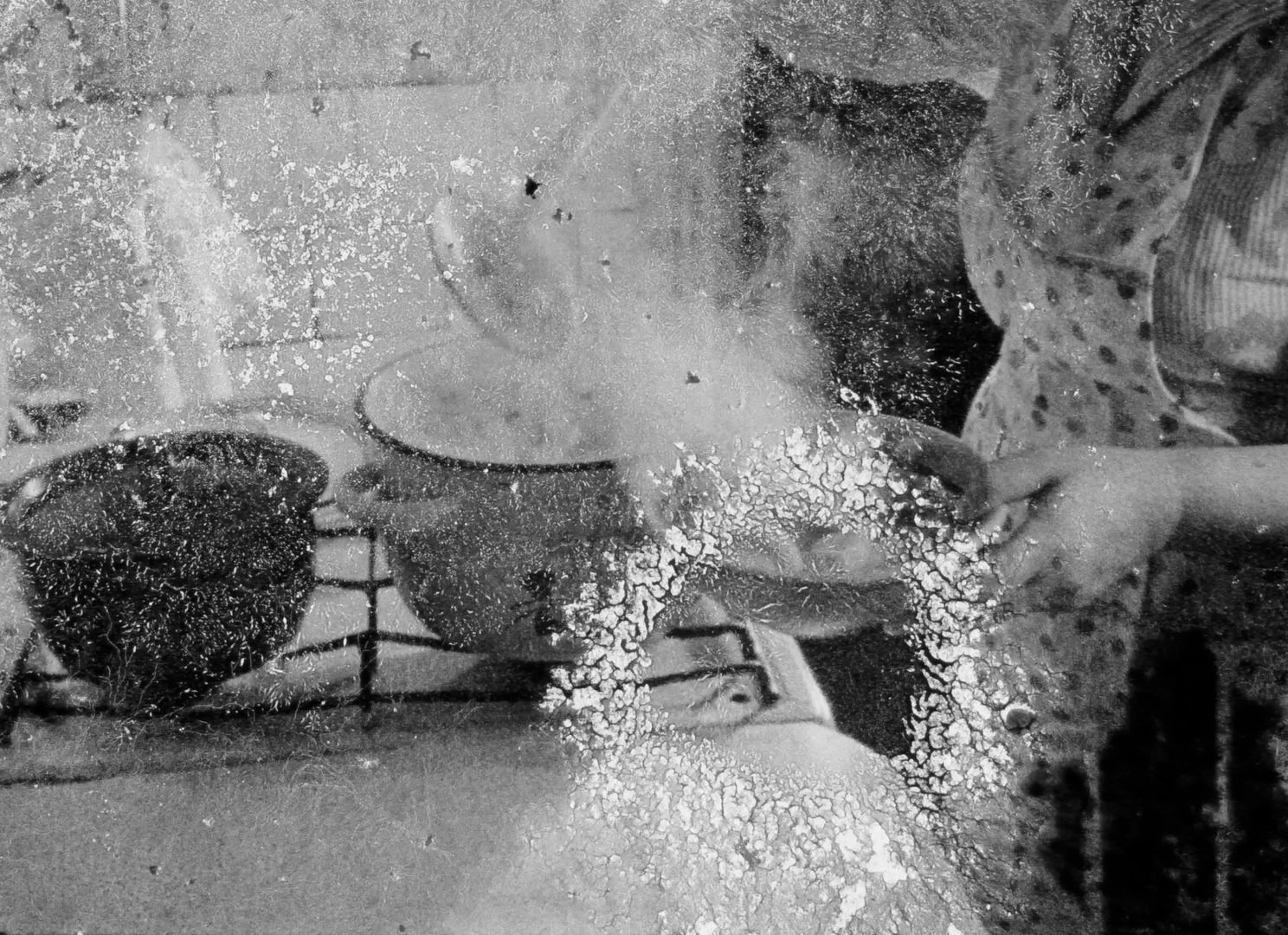Damaged still image from a 1987 film by Victor Kyzyma (damage caused by agricultural lime), Urban Media Archive, Center for Urban History of East Central Europe
Food Allergies and the Hygienic Sublime
Danya Glabau
15.00 CET Thursday 24 March 2022
Online: Click here to join
Food allergy management offers an intriguing case study for understanding the agency of non-human things in our world. In this talk, we will examine the food allergy case and consider broader theoretical and methodological lessons for art and design research.
For food allergic people, the ordinary residues in a lived-in kitchen – crumbs on the counter, a thin sheen of oil on the stovetop, a sprinkling of flour dusted on the shelves – present immediate dangers to someone managing an allergy (for instance, to peanuts, wheat, or shellfish). To manage such ever-present threats, food allergy households turn to intensive management of home hygiene and the recreation of media images of the home as a sparkling clean, luxurious setting for heteronormative domestic bliss. I call these figurations of the perfectly curated home the hygienic sublime. The hygienic sublime runs up against the practical limits of purity, imposed (for example) by the agency of microscopic agents contained in food oils and proteins. At the same time, it privileges whiteness, heteronormativity, wealth and the nuclear family as frameworks for keeping the body safe in the contaminated – and contaminating – spaces of modern American life.
Danya Glabau is a medical anthropologist and STS scholar, and Industry Assistant Professor and Director of the Science and Technology Studies program at NYU Tandon School of Engineering. Her research examines patient activism, the medical economy, and how human bodies become valuable data. Her forthcoming book, Food Allergy Advocacy: Parenting and the Politics of Care, examines how food allergy activists get involved in scientific research and political advocacy, and how race, class, and gender shape their advocacy goals. She earned her PhD from the Department of Science and Technology Studies (STS) at Cornell University.
Inviting interventions is one of a series of events organised alongside Residency 21, Nature Scribbles and Flesh Reads. The residency proposes a process of collective research into intertwined relationships between body and environment, seeking to understand ways in which contaminating toxins cut through lands and bodies.
This event is held in collaboration with artist Kajsa Dahlberg; The Royal Institute of Art, Stockholm; and Index – The Swedish Contemporary Art Foundation.



